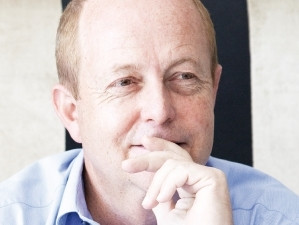
Business must be booming for XLink, I think, as its founder and CEO Anton Leal settles into an armchair at The Marion, a gorgeous boutique hotel.
It's just around the corner from XLink's offices so they hold company events here, he says. It sounds extravagant, but as we chat, I realise it's all to do with Leal's desire to treat his staff well and share the benefits of a successful business. Which is a far less common attitude than it ought to be, he believes.
"Decent reward schemes are a passion of mine. I'm a firm believer that if you set up the right reward schemes, you get the right outputs from people because it creates a sense of ownership," he says.
XLink is now 10 years old and its core products are the wireless communication technologies that use GSM networks to link point of sale terminals to banks for credit card authorisation. Before XLink arrived, the terminals connected via a Telkom line, which was expensive and often unreliable.
Now XLink holds a 60% market share by connecting 80 000 units for 56 000 clients and processing 35 million transactions a month.
It's a money-spinner for its shareholders Vodacom, Pan African Capital and a handful of stalwart managers.
Several years ago, Leal instigated a share incentive scheme to give all the managers a stake, and then introduced Stretch Bonuses for people who exceed their targets. Next, he went even further.
"Last year, everybody got a pre-paid Visa card and if someone does something well, they get something loaded onto the card straight away," he says. "If we have a good six months, everyone from the tea lady upwards gets a top-up."
Demanding business
The generosity works brilliantly. "We haven't lost one manager since its inception in a business that is quite poachable, and a big part of that can be attributed to the reward schemes," Leal says. "We actually have a waiting list of people who want to come and work for us."
At 53, Leal is stocky, balding and delightfully affable as he talks about his company and his career. Actually this is his third career, he says, all of them in IT.
While he was studying for a B.Com, his brother was founding Spartan Computers after winning one of the first Apple PC dealerships in South Africa. Leal joined the company to sell accounting packages. He was then conscripted by the army, and used his skills to convert manual accounting ledgers onto spreadsheets for army canteens. He laughs as he recalls how he used to sneak off and play golf, telling his colleagues he was away fixing these mysterious beasts called computers.
When Spartan was sold, Leal started a PC rental business. He then created a venture selling a tracking device to prevent computer theft. On the surface, it appeared to be doing well, he says. "We got great PR and exposure on radio and TV, but we still hadn't sent an invoice."
He hadn't done his homework properly, and ended up drained and exhausted, burned out by early starts, late finishes, constant pressure and no success. He burnt through his capital too.
"IT is a hell of a demanding business because it moves at such a fast pace. I was in Who's Who at 28 but I was crashing and burning with stress. I was running a business with 120 people and I had two children and it was all too much. I couldn't do it anymore."
Valuable lesson
He dropped out to recover and take stock of his life. Now he views that year of failure as the most valuable lesson of his life. "I thought I was okay at doing business but it really taught me a lot. It was emotionally draining and caused a lot of financial trouble but I'd never have been able to pull XLink off if I hadn't had those knocks," he says.
When Leal heard about the concept of using GSM networks to conduct credit card transactions, he jumped in to commercialise the idea. "After a year of taking a bashing, I was prepared to start from scratch," he says. "From being an MD of quite a big business, I had to go and sell modems to Spar owners in Primrose. But I managed to get all the good people to come and rejoin me and really start this thing."
From being an MD of quite a big business, I had to go and sell modems to Spar owners in Primrose.
Anton Leal, XLink
XLink has become a huge success, and Leal isn't afraid to attribute that to the lessons he learned. "All my ego was out of my system by the time I was 40 and I was trying to apply everything I had learned to get back. I took a hammering from stress in the early years and it's something I share because I give counselling to a lot of young people I see approaching burnout."
That ties in with his passion for giving back and mentoring entrepreneurs. At the moment, that's confined to XLink staff, but he wants to help young black-owned businesses improve their skills in marketing, accounting and commerce.
Right now he's focusing on expanding XLink into Africa. "What's really exciting is that machine-to-machine technology is a big topic and we're in the sweet spot because people need an agile partner," he says.
Its systems are also embedded in Gautrain ticket machines and used to transmit data from temperature gauges and energy measuring tools. That helps to future-proof XLink in case credit card payments are usurped by other technologies.
Meanwhile, the idea of mentoring is future-proofing Leal himself, since his balanced pace of life now means he has many years ahead of him. "I won't retire as long as I'm adding value and having fun," he says.
First published in the July 2014 issue of ITWeb Brainstorm magazine.
Share